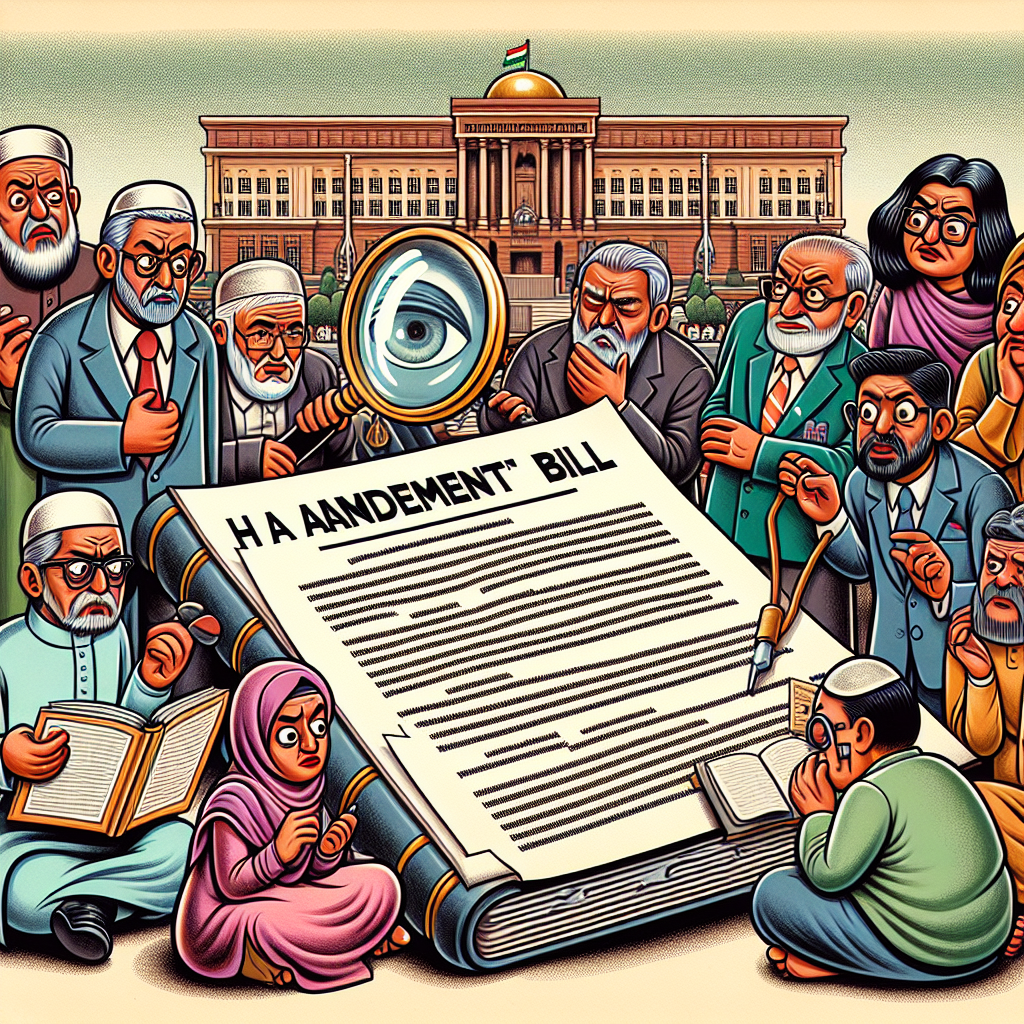Ajmer Sharif Cleric Opposes Waqf (Amendment) Bill
Ajmer Sharif Dargah cleric Syed Sarwar Chishti has condemned the Waqf (Amendment) Bill, labeling it a threat to Muslims' rights to manage their religious affairs and properties. Chishti criticized the bill for proposing reforms that include appointing non-Muslims to Waqf boards, leading to community tensions and potential disputes over religious properties.

- Country:
- India
Ajmer Sharif Dargah hereditary cleric Syed Sarwar Chishti on Thursday labeled the Waqf (Amendment) Bill a 'severe threat' to the fundamental rights of Muslims to manage their religious affairs and protect their religious properties.
Chishti, the hereditary khadim (cleric) of Ajmer Sharif Dargah and secretary of the Anjuman Moinia Fakria Khuddam-E-Khawaja (body of khadims), described the Bill as 'a sheer interference in the religious matters of Muslims' and accused the government of seeking to 'acquire control over properties under Waqf'. The Bill is the first major initiative from the BJP-led NDA government aimed at reforming the registration process for Waqf properties through a centralized portal.
It proposes several reforms, including establishing a Central Waqf Council alongside state Waqf boards with representation for Muslim women and non-Muslim representatives. During a press conference, Chishti expressed deep concern over the provision allowing the appointment of non-Muslims in Waqf boards. 'Waqf boards are religious bodies governed by Islamic principles, and the inclusion of non-Muslim members and leadership would compromise the religious integrity and autonomy of these institutions,' he said.
He said the Anjuman warned that this could result in genuine Waqf properties becoming disputed, disrupting their religious and charitable practices. Chishti also dismissed as 'BJP sympathizers' Muslim bodies that extended support to the Bill. He termed the Bill's supporters as 'Mir Jafars' who backed 'anti-Muslim Bills' such as the law against triple talaq and the Citizenship (Amendment) Act. He also warned that the community would 'treat with them accordingly.'
Regarding the Joint Parliamentary Committee formed to review the Bill, Chishti said, 'The Muslim community has faith only in All India Majlis-e-Ittehadul Muslimeen (AIMIM) chief Asaduddin Owaisi to fight against it. Our faith in other parties such as the Congress diminished long ago in matters related to our faith.' The 31-member committee has been tasked by the Lok Sabha to scrutinize the contentious Bill, which has drawn protests from the opposition parties and Muslim organizations. A contentious provision of the Bill is the proposal to designate the district collector as the primary authority in determining whether a property is classified as Waqf or government land. The Bill was introduced in the Lok Sabha on August 8 and referred to a Joint Committee of Parliament after a heated debate, with the government asserting that the proposed law did not intend to interfere with the functioning of mosques and the opposition claiming it targeted Muslims and was an attack on the Constitution.
(With inputs from agencies.)
ALSO READ
BJP's Sukanta Majumdar Challenges Mamata Banerjee to Resign Over Kolkata Rape Case
BJP MLA Lakshman Dass Napa Resigns After Ticket Denial for Haryana Polls
BJP's Anil Vij Pledges to Strengthen Party Ahead of Haryana Elections
Will Eknath Khadse's Return to BJP Boost Jalgaon's Development?
BJP Confident of Third Consecutive Win in Haryana Assembly Elections










